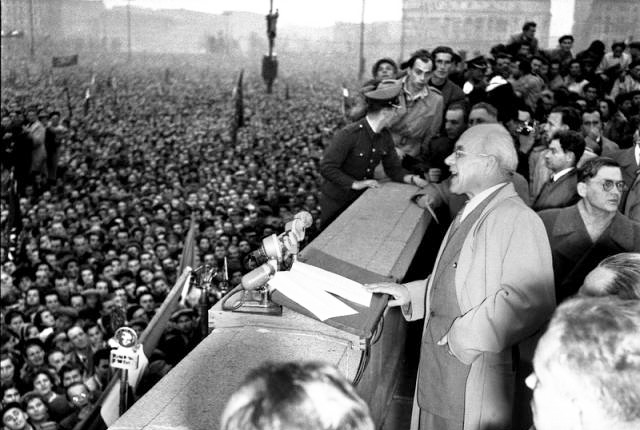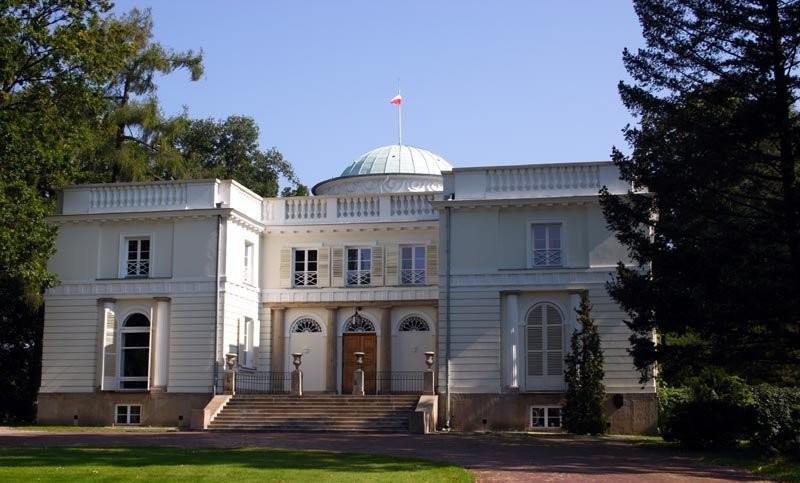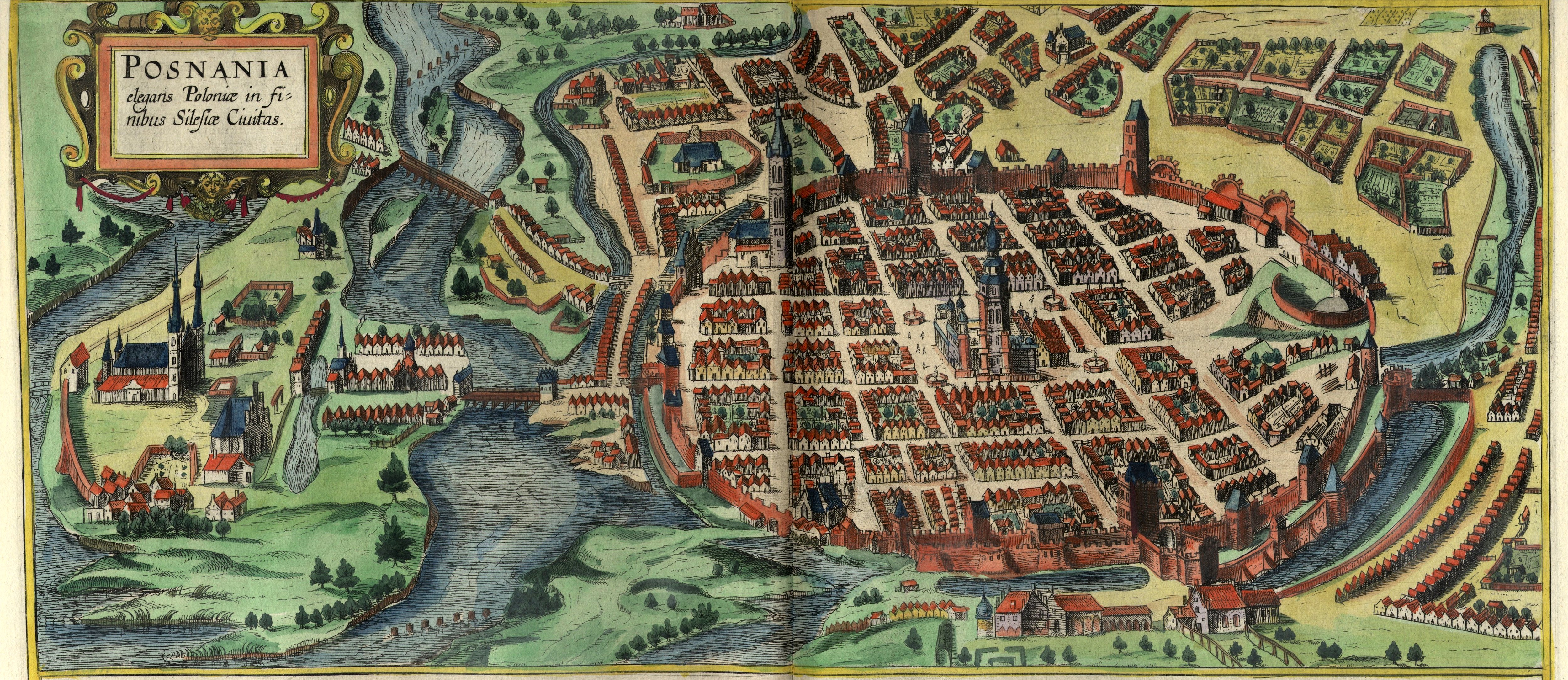|
Polish October
The Polish October ( ), also known as the Polish thaw or Gomułka's thaw, also "small stabilization" () was a change in the politics of the Polish People's Republic that occurred in October 1956. Władysław Gomułka was appointed First Secretary of the ruling Polish United Workers' Party (PZPR) marking the end of Stalinism in Poland. The hardline Stalinist faction of the PZPR was weakened in 1956 from the Secret Speech by Soviet leader Nikita Khrushchev in February, the death of Polish leader Bolesław Bierut in March, and the violent protests in Poznań in June. These events highlighted the people's dissatisfaction with the situation in Poland which allowed Gomułka's nationalist reformer faction to come to power. The Soviets were pressured to compromise with the Gomułka faction, leading to brief but tense negotiations. The Soviets gave permission for Gomułka to stay in power and greater autonomy to Poland in exchange for maintaining its loyalty to Moscow. The Polish Oc ... [...More Info...] [...Related Items...] OR: [Wikipedia] [Google] [Baidu] |
Cold War
The Cold War was a period of global Geopolitics, geopolitical rivalry between the United States (US) and the Soviet Union (USSR) and their respective allies, the capitalist Western Bloc and communist Eastern Bloc, which lasted from 1947 until the dissolution of the Soviet Union in 1991. The term ''Cold war (term), cold war'' is used because there was no direct fighting between the two superpowers, though each supported opposing sides in regional conflicts known as proxy wars. In addition to the struggle for ideological and economic influence and an arms race in both conventional and Nuclear arms race, nuclear weapons, the Cold War was expressed through technological rivalries such as the Space Race, espionage, propaganda campaigns, Economic sanctions, embargoes, and sports diplomacy. After the end of World War II in 1945, during which the US and USSR had been allies, the USSR installed satellite state, satellite governments in its occupied territories in Eastern Europe and N ... [...More Info...] [...Related Items...] OR: [Wikipedia] [Google] [Baidu] |
Natolin Faction
The Natolinians, or the Natolinian faction ( Polish: ''Natolińczycy'', ''frakcja natolińska''), were a grouping within the leadership of the communist Polish United Workers' Party (the '' PZPR''). Formed around 1956, shortly after the 20th Congress of the Communist Party of the Soviet Union, it was named after the palace where its meetings were held, in Warsaw's Natolin district. The main opposition to the Natolinians were the reformist Puławians, who included many PZPR members of Jewish extraction. The Natolinians opposed the post-Stalinist liberalization program (the Polish October "thaw") and, as part of their strategy to seek power, voiced simplistic nationalist and anti-Soviet slogans. The best-known Natolinians included Franciszek Jóźwiak, , Zenon Nowak, Aleksander Zawadzki, Franciszek Mazur, , Kazimierz Mijal, Władysław Dworakowski, and Hilary Chełchowski. The Natolinian faction was also supported by Soviet leader Nikita Khrushchev because of their pro-Sov ... [...More Info...] [...Related Items...] OR: [Wikipedia] [Google] [Baidu] |
Eastern Bloc
The Eastern Bloc, also known as the Communist Bloc (Combloc), the Socialist Bloc, the Workers Bloc, and the Soviet Bloc, was an unofficial coalition of communist states of Central and Eastern Europe, Asia, Africa, and Latin America that were aligned with the Soviet Union and existed during the Cold War (1947–1991). These states followed the ideology of Marxism–Leninism, in opposition to the Capitalism, capitalist Western Bloc. The Eastern Bloc was often called the "Second World", whereas the term "First World" referred to the Western Bloc and "Third World" referred to the Non-Aligned Movement, non-aligned countries that were mainly in Africa, Asia, and Latin America but notably also included former Tito–Stalin split, pre-1948 Soviet ally Socialist Federal Republic of Yugoslavia, Yugoslavia, which was located in Europe. In Western Europe, the term Eastern Bloc generally referred to the USSR and Central and Eastern European countries in the Comecon (East Germany, Polish Peo ... [...More Info...] [...Related Items...] OR: [Wikipedia] [Google] [Baidu] |
Liberalisation
Liberalization or liberalisation (British English) is a broad term that refers to the practice of making laws, systems, or opinions less severe, usually in the sense of eliminating certain government regulations or restrictions. The term is used most often in relation to economics, where it refers to economic liberalization, the removal or reduction of restrictions placed upon (a particular sphere of) economic activity. However, liberalization can also be used as a synonym for decriminalization or legalization (the act of making something legal after it used to be illegal), for example when describing drug liberalization. In economy and trade Economic liberalization refers to the reduction or elimination of government regulations or restrictions on private business and trade. It is usually promoted by advocates of free markets and free trade, whose ideology is also called economic liberalism. Economic liberalization also often involves reductions of taxes, social security, an ... [...More Info...] [...Related Items...] OR: [Wikipedia] [Google] [Baidu] |
Autonomy
In developmental psychology and moral, political, and bioethical philosophy, autonomy is the capacity to make an informed, uncoerced decision. Autonomous organizations or institutions are independent or self-governing. Autonomy can also be defined from a human resources perspective, where it denotes a (relatively high) level of discretion granted to an employee in his or her work. In such cases, autonomy is known to generally increase job satisfaction. Self-actualized individuals are thought to operate autonomously of external expectations. In a medical context, respect for a patient's personal autonomy is considered one of many fundamental ethical principles in medicine. Sociology In the sociology of knowledge, a controversy over the boundaries of autonomy inhibited analysis of any concept beyond relative autonomy, until a typology of autonomy was created and developed within science and technology studies. According to it, the institution of science's existing autonom ... [...More Info...] [...Related Items...] OR: [Wikipedia] [Google] [Baidu] |
Reform
Reform refers to the improvement or amendment of what is wrong, corrupt, unsatisfactory, etc. The modern usage of the word emerged in the late 18th century and is believed to have originated from Christopher Wyvill's Association movement, which identified "Parliamentary Reform" as its primary aim. Reform is generally regarded as antithetical to revolution. Developing countries may implement a range of reforms to improve living standards, often with support from international financial institutions and aid agencies. This can involve reforms to macroeconomic policy, the civil service, and public financial management. In politics, there is debate over what constitutes reform vs. revolution, and whether all changes labeled "reform" actually represent progress. For example, in the United States, proponents of term limits or rotation in office consider it a revolutionary method (advocated as early as the Articles of Confederation) for rooting out government corruption by altering ... [...More Info...] [...Related Items...] OR: [Wikipedia] [Google] [Baidu] |
Nationalism
Nationalism is an idea or movement that holds that the nation should be congruent with the state. As a movement, it presupposes the existence and tends to promote the interests of a particular nation, Smith, Anthony. ''Nationalism: Theory, Ideology, History''. Polity, 2010. pp. 9, 25–30; especially with the aim of gaining and maintaining its sovereignty ( self-governance) over its perceived homeland to create a nation-state. It holds that each nation should govern itself, free from outside interference (self-determination), that a nation is a natural and ideal basis for a polity, and that the nation is the only rightful source of political power. It further aims to build and maintain a single national identity, based on a combination of shared social characteristics such as culture, ethnicity, geographic location, language, politics (or the government), religion, traditions and belief in a shared singular history, and to promote national unity or solidarity. There are ... [...More Info...] [...Related Items...] OR: [Wikipedia] [Google] [Baidu] |
Poznań 1956 Protests
Poznań ( ) is a city on the River Warta in west Poland, within the Greater Poland region. The city is an important cultural and business center and one of Poland's most populous regions with many regional customs such as Saint John's Fair (''Jarmark Świętojański''), traditional Saint Martin's croissants and a local dialect. Among its most important heritage sites are the Renaissance Old Town, Town Hall and Poznań Cathedral. Poznań is the fifth-largest city in Poland. As of 2023, the city's population is 540,146, while the Poznań metropolitan area (''Metropolia Poznań'') comprising Poznań County and several other communities is inhabited by over 1.029 million people. It is one of four historical capitals of medieval Poland and the ancient capital of the Greater Poland region, currently the administrative capital of the province called Greater Poland Voivodeship. Poznań is a center of trade, sports, education, technology and tourism. It is an important aca ... [...More Info...] [...Related Items...] OR: [Wikipedia] [Google] [Baidu] |
Bolesław Bierut
Bolesław Bierut (; 18 April 1892 – 12 March 1956) was a Polish communist activist and politician, leader of History of Poland (1945–1989), communist-ruled Poland from 1947 until 1956. He was President of the State National Council from 1944 to 1947, President of Poland from 1947 to 1952, General Secretary of the Communist Party, General Secretary of the Central Committee of the Polish United Workers' Party, Central Committee of the Polish United Workers' Party from 1948 to 1956, and Prime Minister of Poland from 1952 to 1954. Bierut is believed to have worked as an NKVD informant or agent prior to 1945, although his relationship with the Soviet agency has been a subject of debate among historians. As communist leader, he implemented aspects of the Stalinist system in Poland.Jerzy Eisler, ''Siedmiu wspaniałych. Poczet pierwszych sekretarzy KC PZPR'' [The Magnificent Seven: first secretaries of the PZPR], pp. 32–35. Wydawnictwo Czerwone i Czarne, Warszawa 2014, . Together wi ... [...More Info...] [...Related Items...] OR: [Wikipedia] [Google] [Baidu] |
Secret Speech
"On the Cult of Personality and Its Consequences" () was a report by Soviet leader Nikita Khrushchev, First Secretary of the Communist Party of the Soviet Union, made to the 20th Congress of the Communist Party of the Soviet Union on 25 February 1956. Popularly known as the Secret Speech (), this is something of a misnomer, as copies of the speech were read out at thousands of meetings of Communist Party and Komsomol organisations across the country. Khrushchev's speech was sharply critical of the rule of the deceased General Secretary and Premier Joseph Stalin, particularly with respect to the purges which had especially marked the last years of the 1930s. Khrushchev charged Stalin with having fostered a leadership cult of personality despite ostensibly maintaining support for the ideals of communism. The speech was shocking in its day. There are reports that some of those present suffered heart attacks and that the speech even inspired suicides, due to the shock of all of Kh ... [...More Info...] [...Related Items...] OR: [Wikipedia] [Google] [Baidu] |
Stalinist
Stalinism (, ) is the totalitarian means of governing and Marxist–Leninist policies implemented in the Soviet Union (USSR) from 1927 to 1953 by dictator Joseph Stalin and in Soviet satellite states between 1944 and 1953. Stalinism included the creation of a one man totalitarian police state, rapid industrialization, the theory of socialism in one country, forced collectivization of agriculture, intensification of class conflict, a cult of personality, and subordination of the interests of foreign communist parties to those of the Communist Party of the Soviet Union, which Stalinism deemed the leading vanguard party of communist revolution at the time. After Stalin's death and the Khrushchev Thaw, a period of de-Stalinization began in the 1950s and 1960s, which caused the influence of Stalin's ideology to begin to wane in the USSR. Stalin's regime forcibly purged society of what it saw as threats to itself and its brand of communism (so-called "enemies of the pe ... [...More Info...] [...Related Items...] OR: [Wikipedia] [Google] [Baidu] |
Politics Of Poland
The government of Poland takes the form of a unitary semi-presidential representative democratic republic, whereby the president is the head of state and the prime minister is the head of government. Executive power is exercised, within the framework of a multi-party system, by the president and the Government, which consists of the Council of Ministers led by the prime minister. Its members are typically chosen from the majority party or coalition, in the lower house of parliament (the ''Sejm''), although exceptions to this rule are not uncommon. The government is formally announced by the president, and must pass a motion of confidence in the ''Sejm'' within two weeks. Legislative power is vested in the two chambers of parliament, ''Sejm'' and Senate. Members of Sejm are elected by proportional representation, with the proviso that non-ethnic-minority parties must gain at least 5% of the national vote to enter the lower house. Currently five parties are represented. Parlia ... [...More Info...] [...Related Items...] OR: [Wikipedia] [Google] [Baidu] |





